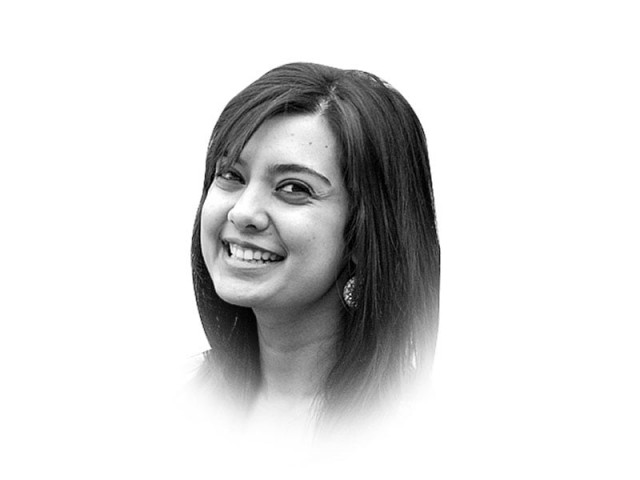Business as usual
Pakistanis have copyrighted “resilience” as if it denotes our collective ability to endure injustices.

The writer is associate editor of South Asia Magazine and holds a BA in international relations from Boston University
This is not the first time a bomb has exploded in Abbas Town (or any other locality in Karachi), nor is it the first time that the Shia community has been targeted in Pakistan. In light of innumerable episodes, civil society, most recently, and media gradually rallied behind the Hazara Shias from Quetta, demanding their right to live and protesting against the systematic Hazara killings. As the widespread Shia massacre continues unabated, the people of Pakistan look on, some with horror and some with unfortunate apathy. The need has never been more urgent to form a consensus and vociferously demand an end to nonsensical violence which threatens our very survival. The “internal threat” that successfully continues to rip our social fabric apart has yet to be addressed, despite the army chief’s unexpected announcement on Independence Day last year that the Pakistani state is pitted against an internal enemy that must be stamped out. A welcome move, as for a fleeting moment it seemed that the establishment would see some level of overhaul, but results are yet to be delivered.
A shameless media scurries to secure sound bites from orphaned children and devastated mothers in a desperate effort to secure ratings. Images of children lying in pools of their own blood, charred and destroyed apartment buildings, wailing women and injured men should be enough to jolt us to reality. This is happening on our watch and make no mistake, we are responsible for this carnage. Tomorrow, when life returns to normalcy, we will forget this systematic massacre until another bomb rips through a populated area. Shias are murdered and we are given, yet another opportunity, to briefly raise our voices. One hundred and eighty-seven million Pakistanis occupy this great country and our ethnic, religious, linguistic and cultural diversity is what makes us unique. We must strive to not only protect it but promote it.
Pakistanis have copyrighted “resilience” as if it denotes our collective ability to endure injustices, condemn wrong and wage for justice and peace no matter what the threat. This cannot be farther from the truth. We are numb and divided to the core, jaded towards horrific occurrences that have become commonplace. We are then not resilient for we, the overwhelming majority, remain silent, inactive and absent. Perhaps paralysed by fear and, in some cases, apathy, we lack the collective vigour to successfully rally against atrocities and demand accountability from our leaders who continue to exploit the people and misdirect state resources behind a façade of democracy.
Like many young Pakistanis, I, too, have Shia and Sunni friends (as well as those from other faiths). In many instances, the distinction hasn’t arisen or been important. We argue about cricket, politics, music, religion and men’s facial hair, amongst other things. Our faith and belief systems may be different but they are not divisive, so why choose religion as the sole determining factor of our friendship? These differences failed to divide us when we were young. And they should fail, even now.
Published in The Express Tribune, March 5th, 2013.












COMMENTS
Comments are moderated and generally will be posted if they are on-topic and not abusive.
For more information, please see our Comments FAQ